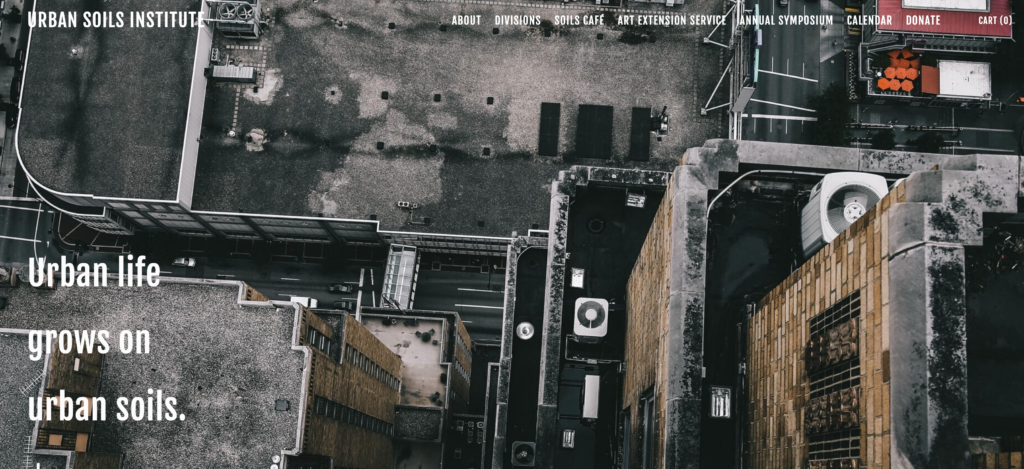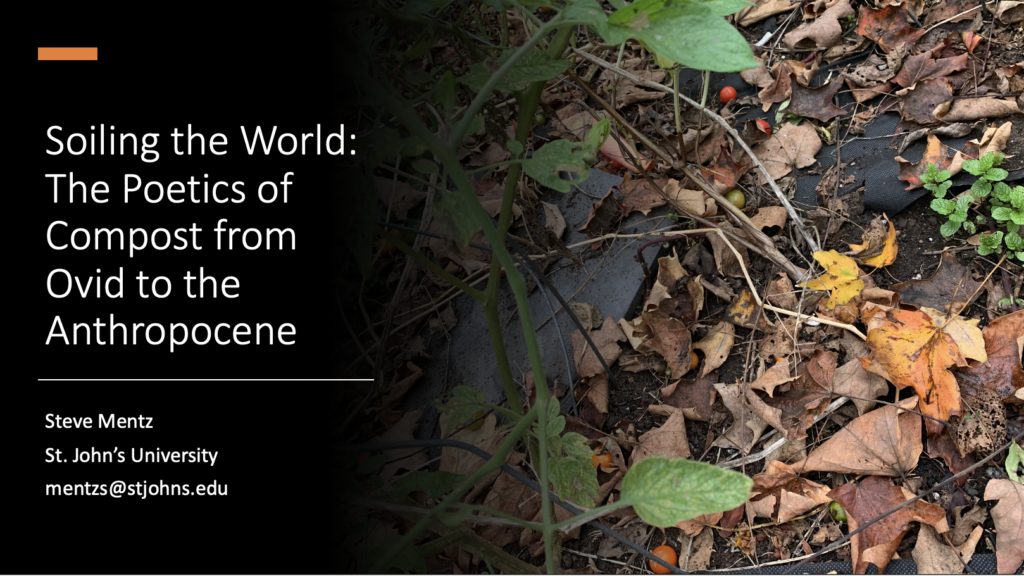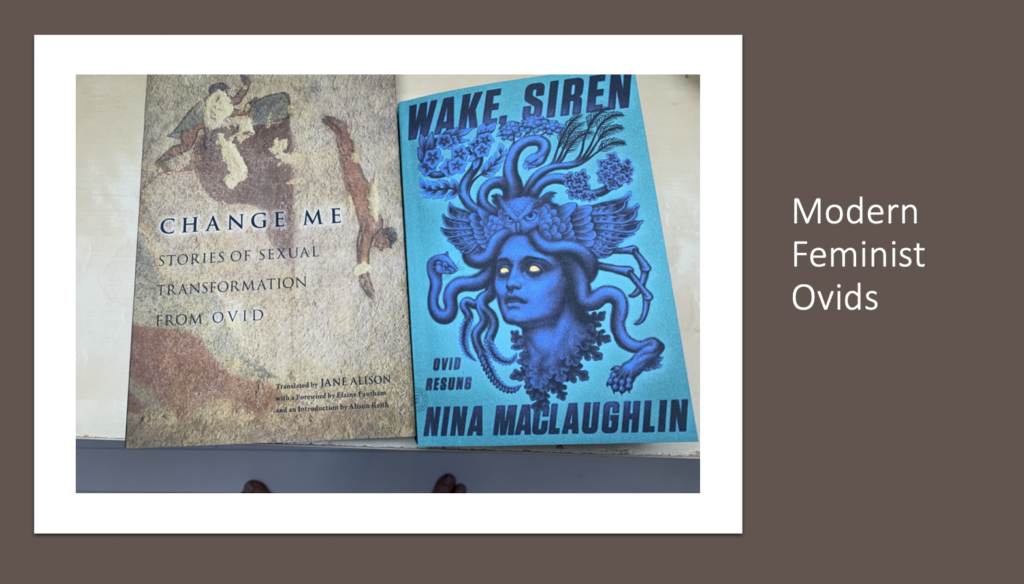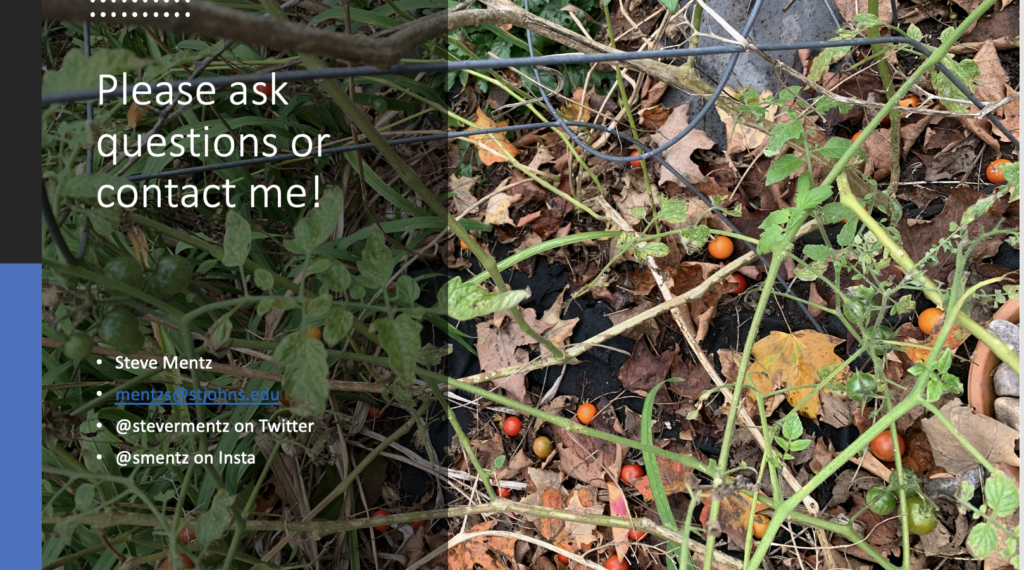In the gorgeous short film that closed out a long, varied, and stimulating Zoomafternoon with the Urban Soils Symposium, the puppet artist Olmstead — half of the puppet theater-reconceived as film-makers duo Alex & Olmstead — offered an eco-koan. “Life exists,” she voice-overed, “because there are six inches of topsoil, and it sometimes rains.”

It made me think of Bruno Latour’s recent book Down to Earth, in which he emphasizes the thin-ness of life on our planet, all of which exists, and always has existed, confined inside the “critical zone,” a narrow 1-2 km thick band of “biofilm” above and below the planet’s surface. In a lecture-performance in New York in 2018 — back when people went places and sat next to people we don’t know! — Latour introduced his notion of “terrestrialism,” which asks us to train our attention away from both the heavens and the planetary core. The world we need to understand is at our feet. It’s soil.
At the Zoomposium on Friday, I presented some ideas toward a “poetics of compost” about what we talk about when we talking about soil-creation, drawing mainly on Shakespeare and Ovid. My title, “Soiling the World,” asks us to think about how soil soils — what actions and processes happen in the living earth, how we understand and fear and depend upon these processes, and how poets and scientists should explore these long histories. Soil includes death and decay, and the renewal that emerges through soil requires a closer engagement with mortal vulnerability that is often comfortable. That’s where we need poets alongside soil scientists.

The baker’s dozen of presenters who spoke together via Zoom yesterday spanned a wide range of approaches, expertise, and modes of presentation. The event was one of favorite kinds of academic/para-academic events, the kinds that toss people together who don’t normally encounter each other — let’s say engineers who design “technosols,” an activist who leads an urban garden in Pittsburgh, puppeteers-turned-filmmakers, textile artists, investment managers… Actually, I think I should make a list. Let’s start at the beginning —
Early Afternoon Sessions
- Maha Deeb started us off a great & detailed presentation about the physical properties of various urban soils, and the projects required to amend them.
- Vlacheslav Vasenev Zoomed in from Moscow to describe a soil research project about how to create “technosols” for the widely different climates in different parts of Russia.
- Moreen Willaredt & Thomas Nels brought the “earthworm engineers” to the party in a slick video presentation of their research into soil manufacturing and productivity. Thomas Nels then joined live to make a great comment about how a productive manufactured soil can be disassociated from land ownership, thus bringing the benefits of soil to an increasingly urban (and non-landowning) population. Given how much of the brutal legacy of settler colonialism structures itself through land ownership, it’s an inspiring vision.
- Raqueeb Bey pivoted us toward political activism with a powerful presentation about BUGS — Black Urban Gardeners Society of Pittsburgh – and their efforts to use soil to advance social and racial justice.
- I rounded out the morning session with differents versions of making-compost, from what will happen my own body after my death to Timon’s cosmic vision to Apollo’s assault of Daphne. H/t to two great new feminist translations of / responses to Ovid by Jane Alison and Nina MacLaughlin!
We had a half-hour of Q&A after these five talks. The exchange was great, and it also reminded me of how challenging it is to get people to speak across disciplines. The Urban Soils hosts did a great job bringing us together, but the first 20-ish minutes were largely dominated by shop talk among the scientists, who all knew each other from the soil world. I posted a question in the chat about politics as a potential connecting discourse to bring the five talks together, but it got passed over. Eventually I figured out how to raise my hand on Zoom (small triumphs!) & was able to use the question of politics to make the hand-off to Raqueeb, who spoke eloquently about how to get political figures to listen when you have a good idea. The time closed before we really got to speak across the humanities / science divide, though I hope later follow-ups will manage that, to an extent.

The truth is — it’s super-hard to germinate those conversations, and we need to have them. To dig into the metaphor, we need to cultivate the rich soil that can grow them from seedlings. One of the most successful such conversations I can remember was between the planetary scientist Lindy Elkins-Tanton and medieval literature scholar Jeffrey Jerome Cohen, hosted by the Folger Shakespeare Library at the Creating Nature event I organized in May 2019, and to some extent I think I just got lucky. The Urban Soils Symposium clearly supports these kinds of conversations. I had to drop off before the afternoon Q&A, and the afternoon session featured a wider range of speakers, so they’ve probably got more great things recorded by now already!
Later Afternoon Sessions
- Kate Douglas guided us into a coffee break with a five-minute “Meditation on Rot – Maybe Dead is Just a Word People Say When They’re Scared.” The virtual coffee break for me included a quick trip down to the beach with the dog.
- The first session after the break featured Heather McMordie’s artistic project “Marsh Senses,” a textile and performance piece created in relation with the threatened salt marshes in her Rhode Island home. A creature of salt marshes myself in coastal CT, I found this piece beautiful and mesmerizing. I want to see / smell / feel more!
- Wendy Aringa, a landscape architect from Brooklyn, spoek about the Gowanus Canal, a post-natural space that people like me who are obsessed with the watery landscapes of New York City love in the complicated ways that one loves toxic and polluted places. I thought of my St. John’s colleague the painter Elizabeth Albert, and her ongoing illustrated project Gowanus Muskrat!
- Microbiologist and designer Paige Whitehead gave a brilliant talk that asks us to think about the violence done to nonhuman environments by road-building. She included a vision of the Indigenous networks of communication and connection that preceded the pavement, and that might be possible again if the tarmac were lifted. Such a great talk!
- Steve Godeke added financial discourses to the mix with an excellent presentation about green investment strategies. It’s good to have money people at the table!
- The puppet duo Alex & Olmstead closed us out with the film I mentioned at the top of this overlong blog post. Another great vision of earthworms as collaborators, and a different way to engage with soil

The fun continues this Halloween afternoon at 2 pm, but in truth my Zoom fatigue will likely send me toward pumpkin-carving and maybe a nice long walk into the salt marsh along the old trolley tracks. I’m very pleased to have connected with this ambitious and omnivorous group — and I look forward to future collaborations, especially once people can be in places together again!